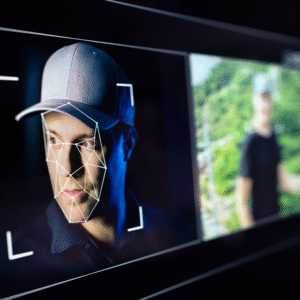18-year-old Sofiia explains why the new Danish legislation could be a model for the rest of Europe

Denmark is trying to combat the unauthorised use of deepfakes.
Picture by: Tero Vesalainen | Alamy
Article link copied.
Denmark recently introduced legislation to protect its citizens against deepfakes – digital versions of people’s identities – created by AI (artificial intelligence).
The legislation amends the Danish Copyright Act 2014 to classify a person’s face, body and voice as works protected under copyright law. Previously, the legislation only applied to creative works such as music, literature and art. This gives citizens of Denmark copyright to their own appearance, so that they can be protected from deepfakes.
Harbingers’ Weekly Brief
A parliamentary vote is scheduled for this autumn and the legislation is expected to be enacted by the end of 2025.
A deepfake is a highly realistic digital reproduction (including video, audio or image) of a person’s characteristics, created by AI.
Deepfakes are often made using a real person’s appearance as a base. According to a European Parliament briefing, it is projected that eight million deepfakes will be shared in 2025, up from 500,000 in 2023.
What is most concerning about the rapid spread of deepfakes is what they are being used for. According to the EU briefing, 98% of deepfakes are used in pornographic material, including child pornography. The report adds: “Deepfakes pose greater risks for children than adults, as children’s cognitive abilities are still developing and children have more difficulty identifying deepfakes.”
The new bill prohibits the sharing of deepfakes without consent. If the law passes, this means that people can demandthat online platforms take down content that uses their AI-generated likeness, allowing them to consequently seek compensation under general Danish law.
Furthermore, the extended protection would include performances as well as literary or artistic works. It bans the use of AI-generated imitations of performances without consent for 50 years after the performing artist’s death.
This type of regulation is the first of its kind in Europe according to the Danish government. The EU AI Act, which came into force on 1 August 2024, aims to eliminate damaging AI-generated content while letting non-damaging AI remain as long as it is clearly labelled as being artificial. However, experts claim it is not as strongas the proposed new Danish legislation.
Danish culture minister Jakob Engel-Schmidt said: “In the bill we agree and are sending an unequivocal message that everybody has the right to their own body, their own voice and their own facial features, which is apparently not how the current law is protecting people against generative AI.”
The Danish legislation is expected to positively influence EU and international law as countries enact measures to resist and regulate the rising use of harmful AI and, more specifically, deepfakes that spread disinformation.
Written by:

Writer
Denia, Spain
Born in 2007 in Kyiv, Sofiia studies in Benitachell, Spain. She is interested in business studies, particularly marketing and plans to study at Geneva Business School in Barcelona. For Harbingers’ Magazine, she writes about gaming and books.
In her free time, Sofiia enjoys video games, reads dystopian fiction, and spends time with her dog. She also was a part of a debating team in Ukraine and won the best speaker award at the Dnipro Open Debating Tournament in 2022.
Sofiia speaks Ukrainian, English, Russian, French, and a bit of Spanish.
Edited by:

🌍 Join the World's Youngest Newsroom—Create a Free Account
Sign up to save your favourite articles, get personalised recommendations, and stay informed about stories that Gen Z worldwide actually care about. Plus, subscribe to our newsletter for the latest stories delivered straight to your inbox. 📲
© 2026 The Oxford School for the Future


